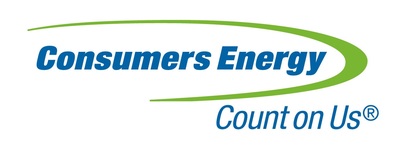Mother Nature to Blitz Michigan with Extreme Cold; Consumers Energy Shares Safety, Savings Information
Consumers Energy, Michigan's largest energy provider and a subsidiary of CMS, has shared crucial safety and savings tips as cold temperatures are expected to hit the state. The company emphasizes safety and energy efficiency, offering strategies such as lowering heating costs by adjusting thermostats, maintaining heating systems, and sealing air leaks. They also highlight the importance of carbon monoxide safety and provide information on financial assistance for those struggling with energy bills. The company has allocated $21 million for community support since the COVID-19 pandemic began.
- Provides safety and energy-saving tips helping customers reduce heating costs by 1-3% per degree lowered.
- Offers financial assistance totaling $21 million to support customers during the COVID-19 pandemic.
- None.
Insights
Analyzing...
JACKSON, Mich., Feb. 5, 2021 /PRNewswire/ -- While this weekend's Big Game promises to be exciting for football fans, Mother Nature is also expected to deliver a blitz of extended cold temperatures to our state over the next week. To help Michigan residents conquer the cold and stay safe and warm, Consumers Energy offers some important safety and savings tips.
"The tips we offer are free or relatively inexpensive but can be so important in terms of both safety and energy savings. Safety – for our customers, employees and the general public – is and always will be our top priority," said Lauren Youngdahl Snyder, vice president of customer experience for Consumers Energy. "We offer a wide variety of energy savings programs and services to help customers take an active role in managing their energy use and keep their costs low this time of year."
Simple Savings Tips
- You can save 1
-3% on heating costs for every degree you dial down. Installing a smart thermostat makes it even more simple to do this. Our online store offers instant rebates on smart thermostats and other energy efficient items like LED lightbulbs that ship directly to your home. - Get a better handle on your energy use by visiting our Energy Dashboard. You can easily see how much energy is being used so you can identify patterns and find ways to save.
- A well-maintained heating/cooling system can save a lot of money. Change your furnace filter monthly during winter months, especially with pets in the home. Have a professional perform annual furnace tune-ups.
- Inexpensively seal air leaks around windows and doors coming into your home with weather stripping and caulk. An 1/8-inch crack around a door is equal to a softball-sized hole in the middle of it. Better insulating and sealing your home can save
$200 a year or more on heating and cooling costs. - Water heating is the second largest energy cost for most households. Dialing back the water heater to 120 degrees will provide for hot showers and help save energy.
Remove Snow/Ice
- Keep natural gas and electric meters and gas furnace intake pipes free of ice and snow. If snow builds up it can become compacted and freeze around the meter, causing damage that can interfere with its operation, and affecting appliances served by that meter. Remove snow by hand.
- Residents with high-efficiency furnaces should make sure the intake exhaust pipes (typically two white plastic pipes coming out from the side of the home) are free from piled or drifting snow to prevent possible obstructions.
- Those living in manufactured homes should safely clear away snow from rooftop chimneys, fresh air intakes and furnace exhaust pipes.
Carbon Monoxide/Fire Safety
- Safely removing snow and ice around meters, intake valves and chimneys can also help prevent carbon monoxide (CO) poisoning. Often called the "silent killer," carbon monoxide is an odorless, colorless, tasteless, toxic gas that can be produced when appliances are not operating or venting properly. Keep chimneys and vent pipes free of obstructions like leaves and nests.
- Installing a UL-listed audible carbon monoxide alarm is the only way to be warned if this dangerous gas is produced.
- Do not use a stove, oven or charcoal grill to heat your home.
- Never use a portable generator inside a home, basement or garage. Operate it outdoors at least 25 feet from the home and away from windows/vents.
"We also want customers to know help is available for those finding it difficult to pay energy bills. Since the COVID-19 pandemic began, Consumers Energy and its charitable foundation have provided
Visit www.ConsumersEnergy.com/coldweather to learn more.
Consumers Energy, Michigan's largest energy provider, is the principal subsidiary of CMS Energy (NYSE: CMS), providing natural gas and/or electricity to 6.7 million of the state's 10 million residents in all 68 Lower Peninsula counties.
For more information about Consumers Energy, go to ConsumersEnergy.com.
Check out Consumers Energy on Social Media
Facebook: https://www.facebook.com/consumersenergymichigan
Twitter: https://twitter.com/consumersenergy
LinkedIn: https://linkedin.com/company/consumersenergy
Instagram: https://www.instagram.com/consumersenergy
![]() View original content to download multimedia:http://www.prnewswire.com/news-releases/mother-nature-to-blitz-michigan-with-extreme-cold-consumers-energy-shares-safety-savings-information-301222868.html
View original content to download multimedia:http://www.prnewswire.com/news-releases/mother-nature-to-blitz-michigan-with-extreme-cold-consumers-energy-shares-safety-savings-information-301222868.html
SOURCE Consumers Energy








